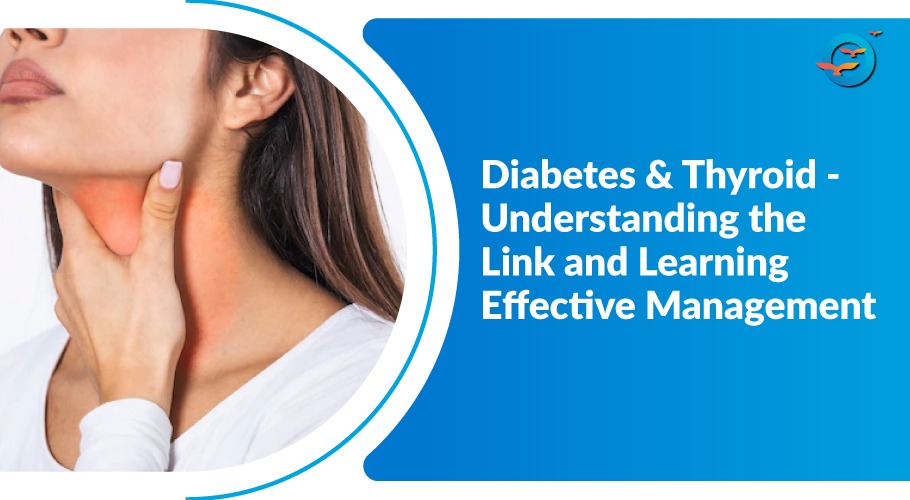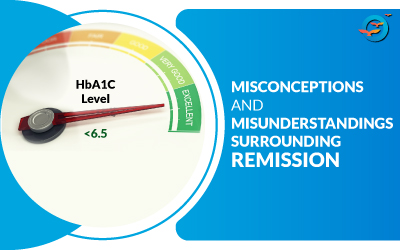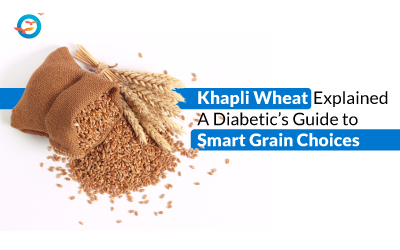Connection Between Diabetes and Thyroid

Diabetes and Thyroid
Living with one chronic illness can be a challenge, but managing two at the same time can feel overwhelming. If you have both diabetes and thyroid problems, you know firsthand how difficult it can be to keep your health in check. But fear not! With some simple tips and tricks, you can take charge of your health and improve your quality of life. In this blog post, we will explore ways to effectively manage both conditions for better control.
Can diabetes affect thyroid levels?
Evidence suggests that thyroid dysfunction can affect a person's insulin and blood sugar levels, which can contribute to the development of diabetes. Both under- and overactive thyroids are more common in people with diabetes than in the general population.
There are a few things to know about the connection between diabetes and thyroid problems. For starters, both conditions can be managed with medication and lifestyle changes. However, it’s important to understand that managing both conditions can be tricky. That’s because the medications used to treat one condition can sometimes make the other condition worse.
The key to managing both diabetes and thyroid problems is to work closely with your doctor. Be sure to keep them updated on how you’re feeling and any changes in your symptoms. Together, you can find the best treatment plan for you.
Tips for Managing Both Diabetes and Thyroid Problems
If you have both diabetes and thyroid problems, you may feel like you're constantly managing your health. But there are some things you can do to make things easier.
Here are some tips for better managing both diabetes and thyroid problems:
- Keep a close eye on your blood sugar levels. This is especially important if you have type 1 diabetes. Make sure to check your blood sugar levels regularly and take steps to keep them in a healthy range.
- Be careful with your medications. Some diabetes medications can affect the way your thyroid medication works. So it's important to talk to your doctor or pharmacist about any possible interactions between your medications.
- Manage stress levels. Stress can make both diabetes and thyroid problems worse, so it's important to find ways to manage stress in your life. Exercise, relaxation techniques, and counseling can all help reduce stress levels.
- Eat a healthy diet. A healthy diet is important for everyone, but it's especially important if you have diabetes or thyroid problems. Eating nutritious foods can help keep your blood sugar levels in check and may also help improve the function of your thyroid gland.
- Get regular exercise. Exercise is a great way to manage both diabetes and thyroid problems. It can help lower blood sugar levels and improve the function of your thyroid gland. Just be sure to talk to your doctor before starting any new exercise program
Diet Modifications to Control Both Conditions-
If you have both diabetes and thyroid problems, it is important to control both conditions. Diet is one way to help control both conditions. You may need to make changes to your diet to help control both conditions.
What should be the diabetes and thyroid diet then?
Here are some diet modifications that may help:
- Cut down on foods that are high in sugar. This includes sweets, sugary drinks, and processed foods.
- Increase your intake of fiber-rich foods. This includes fruits, vegetables, whole grains, and beans.
- Choose lean protein sources. This includes chicken, fish, tofu, and legumes.
- Limit saturated and trans fats. This includes fatty meats, full-fat dairy products, and processed foods.
- Stay hydrated by drinking plenty of water throughout the day
- Exercise and Lifestyle Changes to Improve Overall Health
It’s important to take care of your overall health if you have both diabetes and thyroid problems. Lifestyle changes can help improve your control of both conditions.
Exercise is important for people with diabetes. It can help you manage your weight, lower your blood sugar levels, and improve your sensitivity to insulin. If you have thyroid problems, exercise can also help regulate your metabolism.
Healthy eating is essential for managing both diabetes and thyroid problems. Eating a balanced diet can help you maintain a healthy weight, control your blood sugar levels, and get the nutrients you need. You may need to pay special attention to certain nutrients if you have thyroid problems, such as iodine and selenium.
Getting enough sleep is also important for people with both diabetes and thyroid problems. Sleep helps your body heal and repair itself. It can also help regulate hormones that are important in managing both conditions.
Making these lifestyle changes can be difficult. But they’re worth it to improve your overall health.
Medications for Diabetes and Thyroid Problems Management
There are a few different types of medications that can be used to help manage both diabetes and thyroid problems. One common medication is metformin, which is used to help control blood sugar levels. Another medication that can be used is levothyroxine, which is used to help regulate thyroid hormone levels.
Are you struggling to manage both your diabetes and thyroid problems? It can feel like an uphill battle, but don't lose hope just yet! With the right tips and guidance, it is possible to regain control of these conditions. And that's where Freedom from Diabetes comes in with their revolutionary Diabetes Reversal Program.
This one year Holistic Transformation Program has helped thousands of people reverse their diabetes and thyroid issues effectively. Join the one year Holistic Transformation Program at Freedom from Diabetes now, and begin your journey towards good health!

